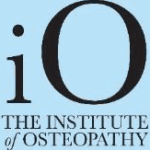Osteopathy is a form of alternative medicine that focuses on the holistic treatment of the musculoskeletal system and overall health. Osteopathic practitioners believe that the body has self-healing mechanisms, and they aim to facilitate the body’s ability to heal itself by restoring balance and proper function.
Here are several ways osteopathy could potentially make a difference in your health:
- Pain Relief: Osteopathic treatment often involves manual manipulation of the muscles, joints, and tissues, which can help alleviate pain associated with various conditions such as back pain, neck pain, headaches, and arthritis.
- Improved Mobility: By addressing issues in the musculoskeletal system, osteopathy can improve joint mobility and flexibility, making it easier to move and reducing the risk of injury.
- Enhanced Circulation: Osteopathic techniques can help improve blood flow and lymphatic drainage, which can promote better circulation throughout the body. Improved circulation can aid in the delivery of nutrients and oxygen to tissues while removing waste products more efficiently.
- Stress Reduction: Osteopathic treatments often incorporate techniques to relax the body and mind, such as gentle manipulation, stretching, and soft tissue massage. This can help reduce stress levels and promote relaxation, which may have positive effects on overall health and well-being.
- Support for Various Conditions: Osteopathy is used to complement conventional medical treatments for a wide range of conditions, including musculoskeletal disorders, digestive issues, respiratory problems, and even certain neurological conditions. It can help manage symptoms and improve overall quality of life.
- Preventive Care: Osteopathic practitioners often focus on preventive measures to maintain optimal health and prevent future problems. By addressing imbalances and dysfunctions in the body early on, osteopathy can help prevent the development of more serious issues down the line.
- Individualized Treatment: Osteopathic treatment plans are tailored to the individual needs of each patient. Practitioners take into account factors such as medical history, lifestyle, and specific health goals to develop personalized treatment strategies.
It’s important to note that while many people find relief and benefit from osteopathic treatment, the effectiveness of any medical intervention can vary from person to person. Additionally, osteopathy should be used as part of a comprehensive approach to health care, and individuals should consult with qualified healthcare professionals for diagnosis and treatment recommendations.





